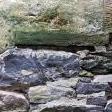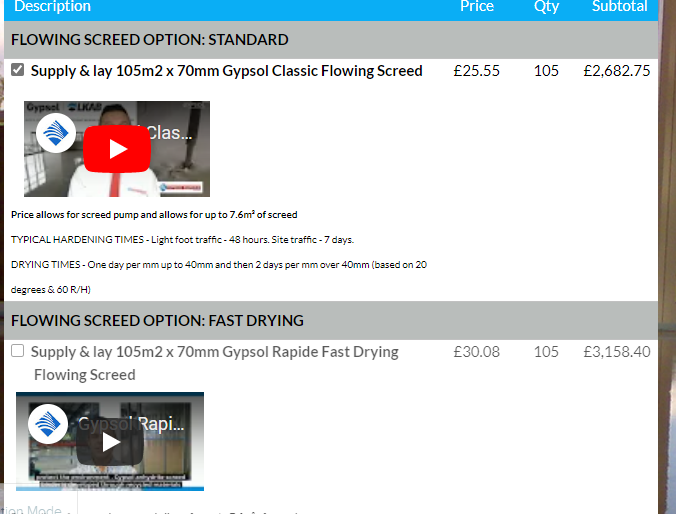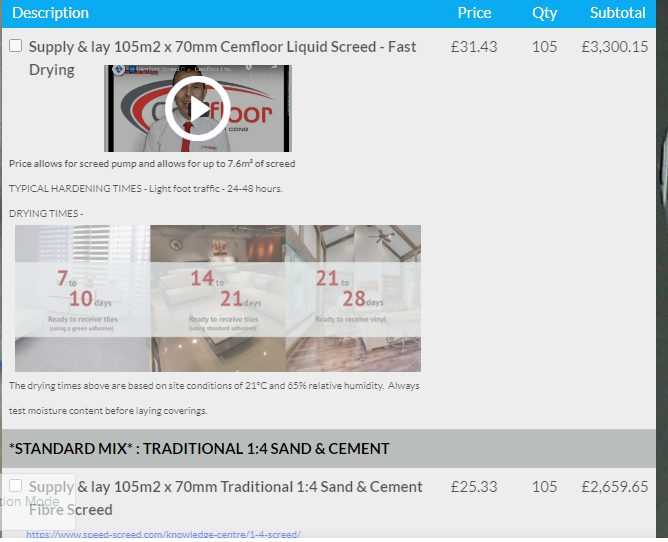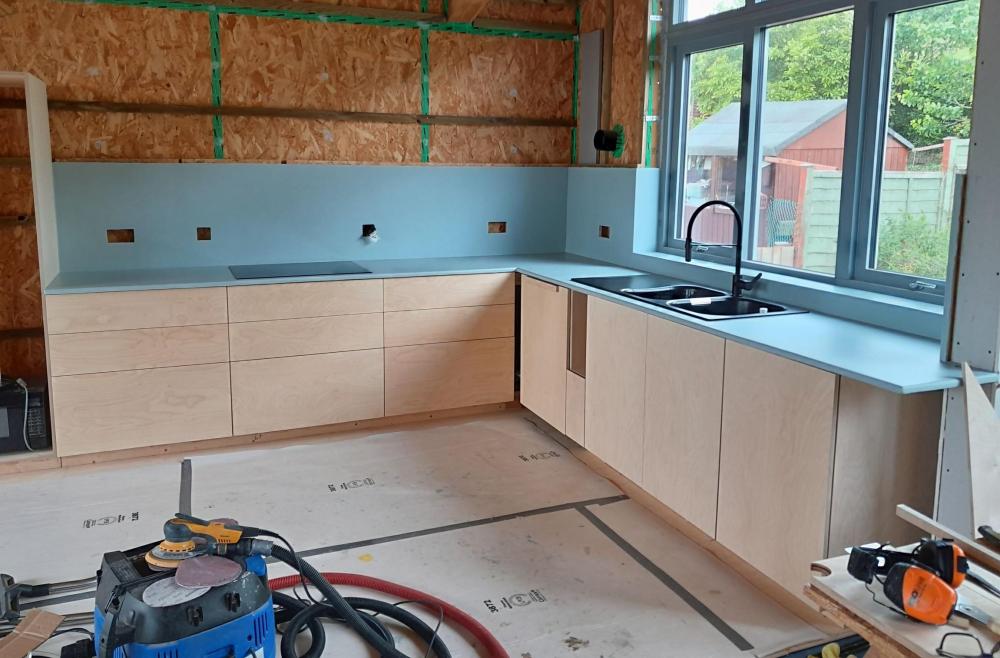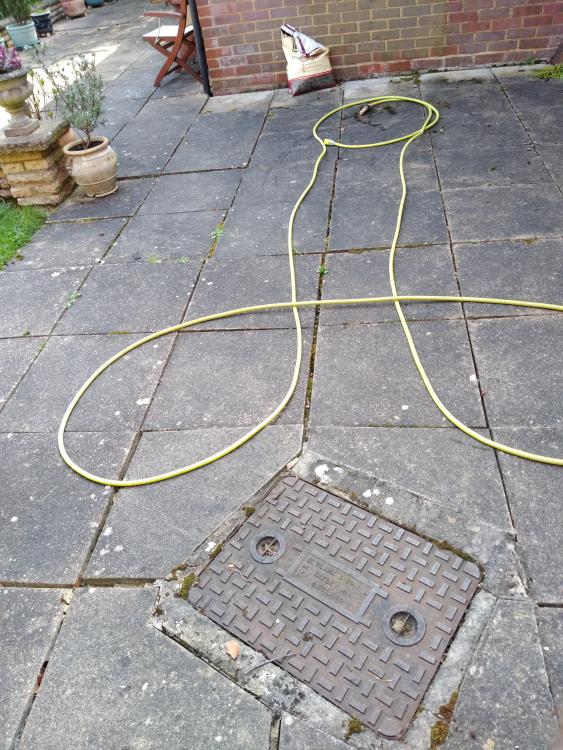Leaderboard
Popular Content
Showing content with the highest reputation on 06/25/22 in all areas
-
My apologies 🙄. Yes, olive eating into pipe, and the fact that the whole functionality of the olive is to compress onto something rigid, which reinforces by design how it is lunacy to turn / tighten it into soft plastic. The plastic cannot offer any opposing force so just gets displaced. The nut gets tightened until ‘someone’ decides it’s “tight enough” and the resultant joint is a compromise even before you’ve put water in the pipe. The issue of the insert being used ( or not ) is of zero relevance, as nobody here can compensate or advise against idiots not following instructions. However, when the instruction is to do something poorly, and it comes from the manufacturer, go figure. I’ll not defend that any further, just a plumber on the tools for 3 decades stating what’s shite, and why. That’s impartial and free advise, given on a take it or leave it basis.2 points
-
or a length of this stuff: https://www.armatherm.co.uk/products/frr-structural-thermal-break-material/1 point
-
1 point
-
The BiL funnily enough has knocked up a box section jib for the front of his dumper. No calcs, just rule of thumb / over engineered. I'll get a pic over the next day or so.1 point
-
Lets hope @Onoff reads this. The last of the videos above has a separate crane unit - based on two strong A frames. That appeals to me. Hitched to a towing point, it means that the unit can be stored and tinkered with separately. Is there any way to attach a rig like that to the swinging part of the dumper?1 point
-
But youll import from the grid if theres demand from the house whilst ALL output is going to the immersion??1 point
-
Our Grant Vortex feeds a 300L store and that feeds UFH and DHW. The dial on our Grant boiler does not set the flow temperature, it sets the maximum flow temperature at which cycling will occur. What happens is the store calls for heat and the boiler fires up. The flow temperature starts rising until it hits the temperature set by the dial (which is unmarked). The burner (but not the pump) then shuts off and the flow temperature falls until the boiler decides to relight the burner. This cycling continues until the store is satisfied. I found the best way to run it is to ensure the dial on the boiler is right up. Then crank up the boiler pump speed so that the flow temperature never gets hot enough to trigger cycling. The burner runs continuously until the store is satisfied. The pump has to be fast enough and the return temperature low enough so all of the power is sucked out of the boiler. If not the flow temperature rises until the dial limit is reached and cycling occurs. I was recommended to fit a mixer in the boiler return so that the return is kept above 40C. This uses some of the boiler flow to heat the return but it only kicks in if the store is cold (eg after a holiday or first time heating is turned on).1 point
-
The manual for our old Grant Vortex says the return to the boiler needs to be above 40C (to stop corrosion) and below 50C (to ensure condensing).1 point
-
It’s quite complicated to do it as the inverter normally needs to “see” the mains to get its phase signal so using a switching isolator to dump to the immersion first without going via the CU will be problematic. What may be more use is twin immersions - set the top higher than the bottom and use the bottom as secondary dump load. That way you’re only heating a smaller part of the tank but it’s the “useful” part unless you’ve run a bath and drained the tank. It’s also usually above the boiler thermostat so won’t let the boiler trigger if small amounts of water are drawn off.1 point
-
Trying to get my brain around this. Thinking aloud.. So let's say the PV is generating 1.7kW and the house has a demand of 1kW. With the Iboost Tank Cold... tank uses 0.7kW, house uses 1kW, Export is 0kW. Tank Hot... tank uses 0kW, house uses 1,kW, Export is 0.7kW With the proposed system... Tank Cold... tank uses 1.7kW, house Imports 1kW. Tank Hot... tank uses 0kW, house uses 1,kW, Export is 0.7kW. So the overall effect would be to import energy to heat the tank faster?1 point
-
Yes, but what I think you are asking for is a ready made device that does it 'out of the box'. That probably does not exist because of the way immersion heaters work and the varying output from PV1 point
-
I'm currently paying £14 per sqm for boarding and skimming. They have excluded window and door openings from the calculations. It includes installation of acoustic insulation in stud walls (not everywhere, just bathrooms and bedrooms). The skim finish looks excellent and there are slopes where the bedroom walls go into the ceilings (dormer windows) which I assume is more difficult. They also tidy up as they go, scraping plaster snots off the floor and bagging board offcuts. So I'm happy to pay a decent rate for premium work.1 point
-
Think I'm in here! Never had such a clear come-on for a single emoji reaction 🤣 We're all just jealous. But seriously, if you need a hug I'll come over*. Just don't be surprised if you're down one Energy bank when I leave. 😁 * I may leave you a dose of corona in exchange.1 point
-
This seems really high. Our fees from buildstore: £300 broker fee £1500 lender arrangement fee £105 lender conveyancing fee £200 discharge fee £20 chaps fee £500 valuation fee We chose to go with an advance stage mortgage where funds are released in advance and the application is packaged and underwritten with an insurance policy and paid an additional £3k on top of this for that type of mortgage. This was 12m ago.1 point
-
The pipe will need to be capable of accepting boiling water, so not your average PVC waste pipe. Someone with a better memory than me will come along I hope and tell you what it is.1 point
-
Praise where due. Having advised our family on site that scaffolders are a different breed, and to prepare for some chaos: this message today from site. You would be pleasantly surprised by the scaffolders: very nice guys, proud of their work and company, and did a full tidy up before they left.1 point
-
1 point
-
You just reminded me to add my emoji to @Big Jimbo's post! I'm just jealous mate, on the slippery slope to fuel poverty here unless I freeze to death first or can make insulation/electricity/fuel from runner beans?1 point
-
1 point
-
It's obviously rubbish. But don't fret, I'll give you £500 and come over to take it off your hands 🙂1 point
-
I fitted one and achieved 0.2ACH. The technical docs say you don't have to fit one, I saw it as erring on the side of caution. If doing a build again, I would still install a VCL. I think @SuperJohnGfitted one with his SIP build too.1 point
-
1 point
-
Whilst your suggestion has a great deal of appeal to it I really honestly do not want to cost the guy more than I have to... I know he started it, I know he is being unpleasant and obstructive and he may consider me as an "enemy" but I don't have the energy to do the same to him, he isn't worth it... However I certainly am not going to spend my own money on it for now1 point
-
As you've already suggested, you've tanked the critical areas and you're installing the boards to go over the top edge of the shower tray and be sealed. If you're putting the sealant on, apply it to the top of the shower tray and then fix the boards on top of that so that the sealant is squidged between the board and tray and then clean it up nicely. I went extra by also having a final silicon bead at the bottom of the microcement/shower tray but is probably not necessary at all going by the installation guidelines. +1 to using the fine surface treatment to fill all the screw holes and joints before applying primer and mesh and do use scrim tape for the corners rather than the base layer mesh. I've just done this on my new kitchen worktop and it was so much easier. Are you doing it yourself? Microcement kitchen worktop although i decided on this occasion not to make the sink out of microcement too - just couldn't muster the energy for that much. (It looks more blue on the photo than it is, which is a 'silver' grey).1 point
-
Nothing lives long on a diet of distilled water. Water is commonly referred to as 'the universal solvent'.1 point
-
This background / compressor heating load is certainly something I was not aware of and a question you should all now ask of the manufacturer before deciding which ASHP to use. A 200W background load in your house would be bad enough, one in a box out in the garden is worse.1 point
-
That's right, it does, but what I'd like is all output going to immersion first, then excess going to the rest of the house.0 points
-
Yes, and it's always good to have a forced excuse to exercise the stopcock once in a while.0 points
-
All that solar stuff looks the mutts. However, those wall cappings.........😂 ......Only kidding buddy. Enjoy your beer. Those cappings are way better than your solvent pipe stickings..0 points
-
0 points
-
0 points






